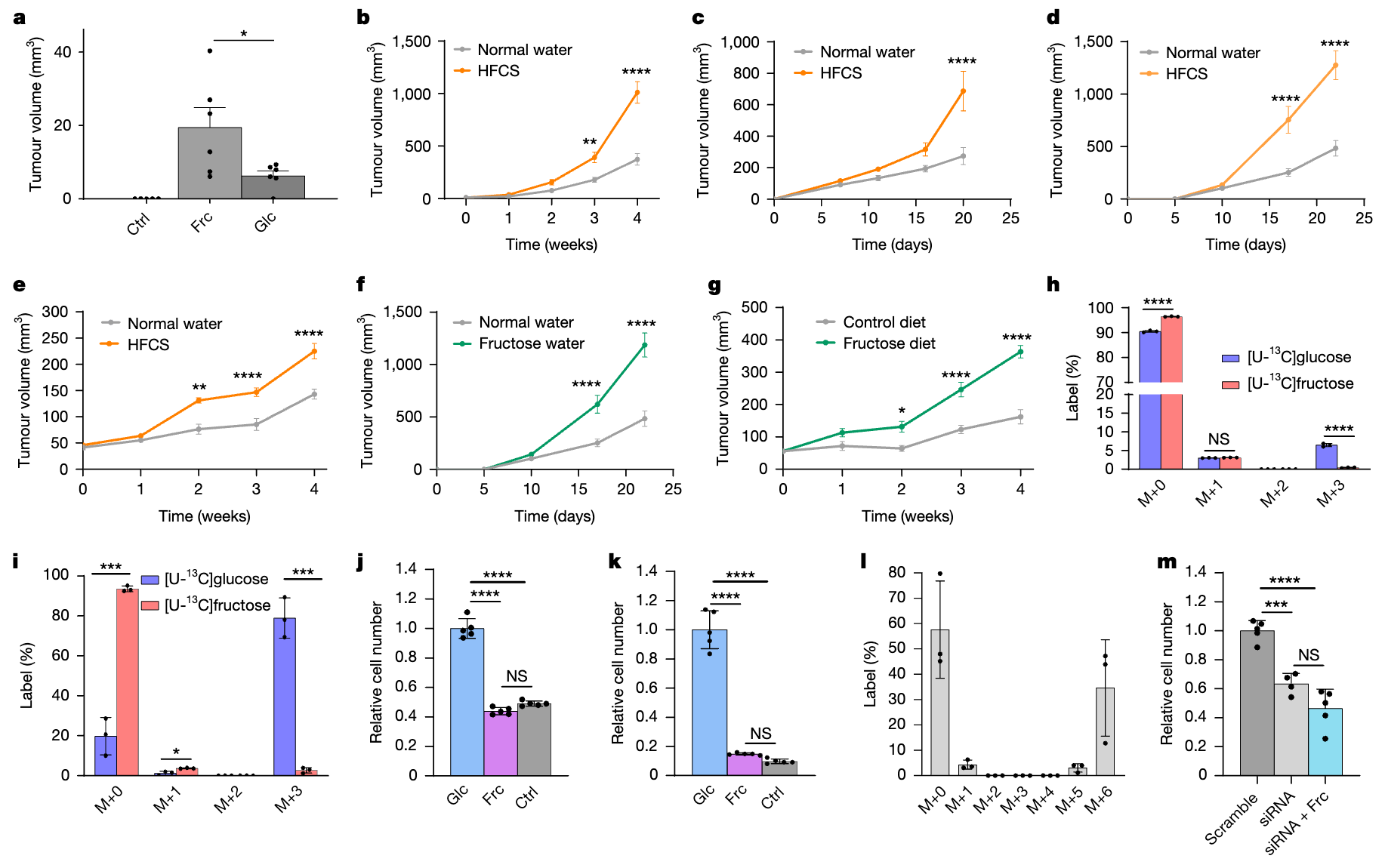Is Sugar Bad for Cancer?
I covered a recently published Nature paper on dietary fructose and cancer growth. It shows fructose indirectly helps tumors grow through liver lipids, while another study shows it directly feeds lung cancer cells. Cutting back on high-fructose foods like soda may help patients.

I recently came across a Nature paper that explored the relationship between dietary fructose and cancer—it was published just a few days ago, so naturally, I had to dive in. While reading, I noticed it cited another paper focused on lung cancer. Since this is a topic I care deeply about, I decided to read that one too.
The First Study: Fructose and Lung Cancer

According to the paper, "metabolic reprogramming" is one of core hallmarks of cancer and contributes to cancer initiation and progression. Elevated glucose metabolism is known to be associated with poorer outcomes for lung cancer patients, and inhibiting this pathway can reduce cancer growth.
But when lung cancer cells use up glucose, they need alternative energy sources. That’s where fructose comes in.
Fructose is the second most common blood sugar in humans. This study focuses on GLUT5, a fructose transporter that helps bring fructose into cells. Lung cancer cells seem to up-regulate GLUT5 expression when glucose is low, using fructose as an alternative fuel source. Unfortunately, higher GLUT5 levels are associated with worse survival in lung cancer patients.
GLUT5-mediated fructose metabolism suppresses AMPK signaling and activates mTORC1, a well-known driver of cancer progression. In summary, this study showed circulating fructose is another crucial metabolic fuel for lung cancer. Dietary fructose is an important source of fructose for lung cancer cells.
The Second Study: Dietary Fructose and Cancer Growth

This paper builds on studies like the one above, adding more evidence that dietary fructose promotes tumor growth. It focused on animal models for melanoma, breast cancer, and cervical cancer.
Interestingly, it found that fructose doesn't directly fuel cancer cell growth. Instead, it works indirectly: liver cells (called hepatocytes) metabolize fructose and release molecules called lysophosphatidylcholines (LPCs) into the bloodstream. Cancer cells consume these LPCs to make phosphatidylcholines, which are essential for building new cell membranes which aid tumor growth.
They showed that administrating LPCs alone also increases tumor growth.
My Thoughts
Both studies highlight the potential for dietary fructose to promote cancer growth, either directly through fatty acid synthesis in lung cancer cells or indirectly via lipid transfer from the liver, although the Nature paper doesn't include human data and lung cancer models.
Given the possible motivations from industries like sugary beverage makers to downplay such findings, I believe lung cancer patients should be especially cautious about consuming large amounts of fructose, e.g., foods with high-fructose corn syrup (HFCS), such as soda and candies.